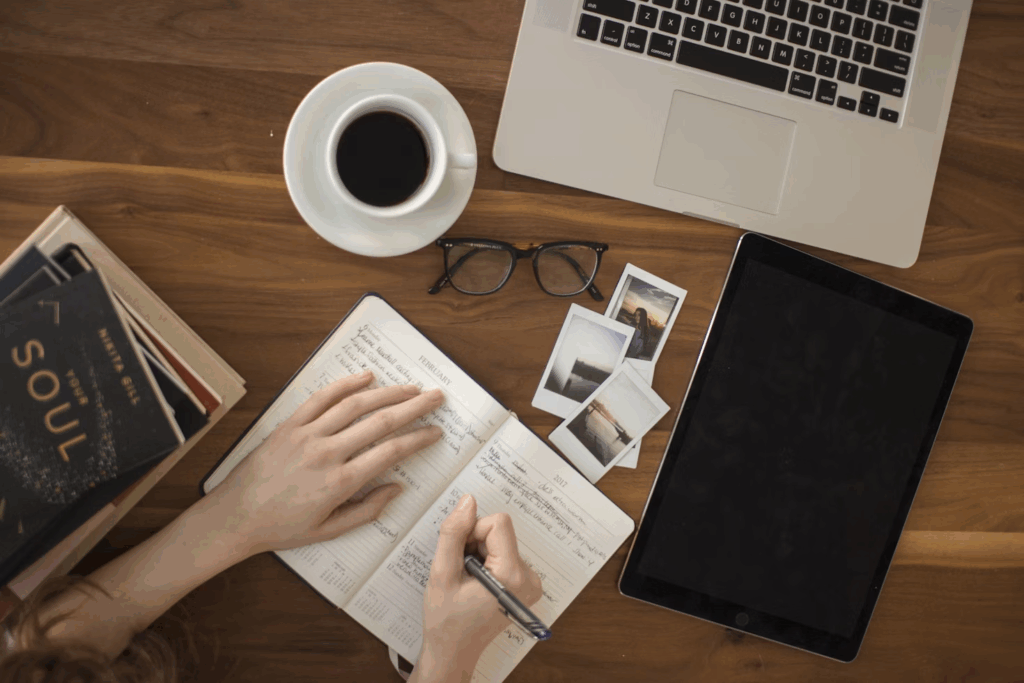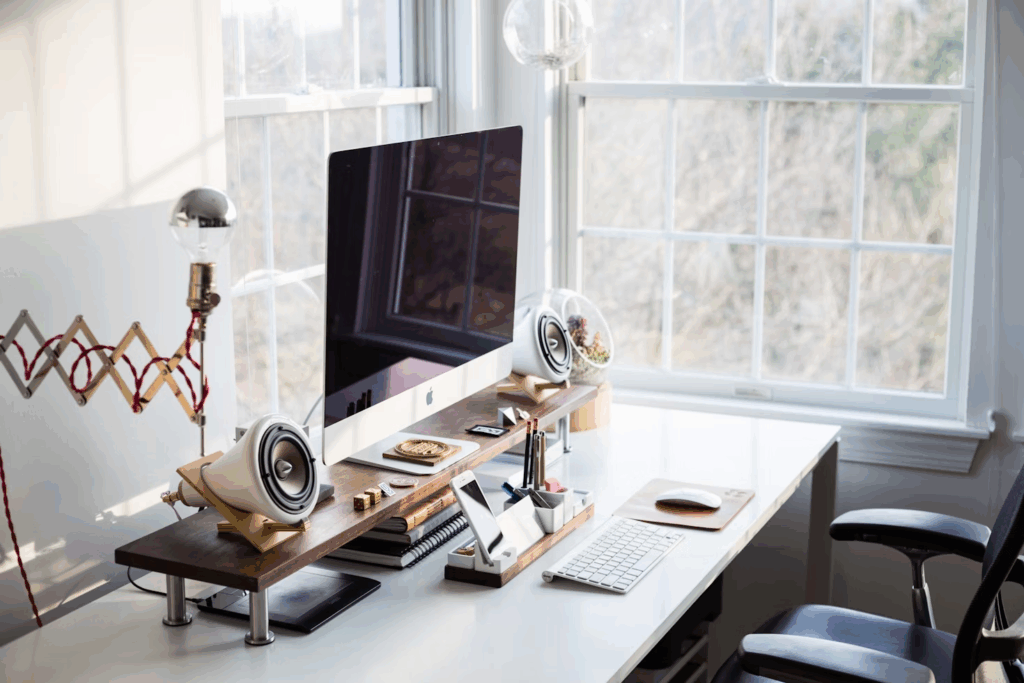Contents
Despite my best efforts—coffee, detailed to-do lists, and noise-canceling headphones—I remained endlessly distracted. The culprit? My very own dedicated workspace. It was cluttered with papers, gadgets, and knick-knacks, making it virtually impossible to concentrate on a single task. My messy desk looked like a battlefield, and it was no wonder my mind felt equally chaotic, filled with mistakes.
I wasn’t alone in this struggle. Statistics show that:
- Employees lose about 720 hours annually due to workplace distractions, significantly impacting overall productivity.
- On average, it takes workers 127 hours per year to regain focus after being interrupted, raising the question of how much time is ultimately lost.
- Even with modern technology, 77% of workers report that digital tools add to their stress and distract them from their tasks.
Clearly, common workplace distractions are a significant issue.
The Problem: Environmental Chaos Breeds Mental Chaos
A cluttered desk is more than just an eyesore; it’s a mental burden. An unstructured or visually chaotic environment leads to distraction and mental fatigue. The ambient conditions of your workspace—lighting, smells, and background noise—unconsciously affect your attention span and cognitive clarity. I realized this when even the scent of the room seemed to sap my energy. Desks can contribute to this clutter and chaos if not organized properly.
I started to explore how different environmental factors were affecting my productivity. Poor lighting made my eyes strain, while background noise from the street outside constantly broke my concentration. Even the scent of the room was contributing to my low energy. That’s when I discovered a selection of home fragrances in Singapore that transformed the air into something fresh and calming.
Focusing on controllable elements reduced my anxiety and helplessness.
Digital Fatigue and Physical Discomfort

Excessive screen time and poor posture were my next enemies. Digital fatigue arises from prolonged screen exposure, leading to eye strain, tension headaches, and decreased motivation. This always-on work culture blurred the boundaries between my work and personal life, contributing significantly to my stress.
I decided to change my daily routine to combat these issues. The key changes included:
- Taking regular breaks
- Using targeted skincare
- Applying a lightweight eye serum from Malaysia that helped reduce puffiness and signs of fatigue during long work sessions
These small changes made a big number difference in my job satisfaction and ability to stay focused.
Moreover, encouraging offline tasks and creating an ergonomic workspace helped reduce physical strain. Simple adjustments included:
- Changing my chair position
- Adjusting the monitor position These changes alleviated a lot of my discomfort. Additionally:
- Taking regular breaks to rest my eyes and stretch significantly improved my mood and reduced frustration.
Security and Disruption: When Your Space Isn’t Truly Yours
Frequent home interruptions—doorbells, deliveries, or worse, concerns about safety—also contributed to my poor focus. Improving my sense of control was key. Upgrading to a smarter, quieter entry system like those offered by Sin Chew Alarm’s access control systems minimized distractions and helped reduce interruptions, creating a secure, undisturbed environment where I can hear better.
This upgrade made my space feel truly mine, allowing me to focus without constant disruptions.
The Turning Point: Rebuilding from the Ground Up
Realizing that a full workspace reset was needed was a turning point. I begin by decluttering my space, reassessing my furniture, and introducing new elements like calming scents and better lighting. But it wasn’t just about physical changes; it was about creating a mental boundary.

Physically stepping out became essential. Renting space at The Work Project – a beautifully designed, flexible coworking office solution – offered a mental refresh and a distinct separation between work and personal life. This physical boundary helped me decide how to respond more effectively to tasks and break the monotony of remote work from home.
These steps were the first step in a series of changes that began to fix my productivity issues. Progress was gradual, but each small change led to a significant improvement in my ability to focus and complete tasks efficiently.
Supporting Factors: Focus Is Not a Solo Game
Focus isn’t just a personal effort; it requires external support. Balancing family responsibilities while working from home was challenging. Enrolling my child in a nurturing day care nursery (Haven Schoolhouse) brought immense peace of mind, allowing me to fully commit to deep work and spend more quality time with my family.
Many employees struggle to stay focused because they juggle multiple responsibilities. Having a support system in place is key to maintaining high performance within the organization. To communicate work hours and set boundaries with family reduced interruptions, creating a more conducive work environment for the team. A clear schedule can further enhance this focus.
Remember, focus is not a solo game. It’s about creating an organized and supportive environment that allows you to concentrate effectively. External support from family, colleagues, and even professional childcare can make a significant difference in your ability to stay focused and productive.
Conclusion
Improving focus isn’t about finding a single fix; it’s about layering thoughtful, intentional choices. From ambient scent to ergonomic space to structured time away from parenting, every element plays a role in creating a mental environment conducive to productivity. Sometimes, improving focus starts not with a to-do list, but by transforming the space in which the doing happens.
In today’s attention-driven economy, the ability to maintain focus is increasingly scarce. Establishing clear expectations, such as designated hours for focused work and minimizing interruptions, is crucial. Leaders can model desired behaviors and recognize employee contributions to enhance focus and motivation.
Frequently Asked Questions
Workplace distractions really hit productivity hard, potentially costing you up to 720 hours a year. It can take a staggering 127 hours just to regain your focus after being interrupted.
Environmental factors like lighting, smells, background noise, and even a messy desk can really impact your ability to focus. Keeping your space organized and minimizing distractions can help boost your concentration.
Taking regular breaks, using comfortable furniture, and balancing screen time with offline activities can really help you fight digital fatigue. It’s all about finding that healthy balance!
Security creates a stable environment by reducing distractions, which helps you concentrate more effectively on your tasks. So, when you feel secure, you’re more likely to stay focused and productive.
External support is vital for productivity, helping you stay focused and perform at your best. Think of childcare and family cooperation as key players in your success!

